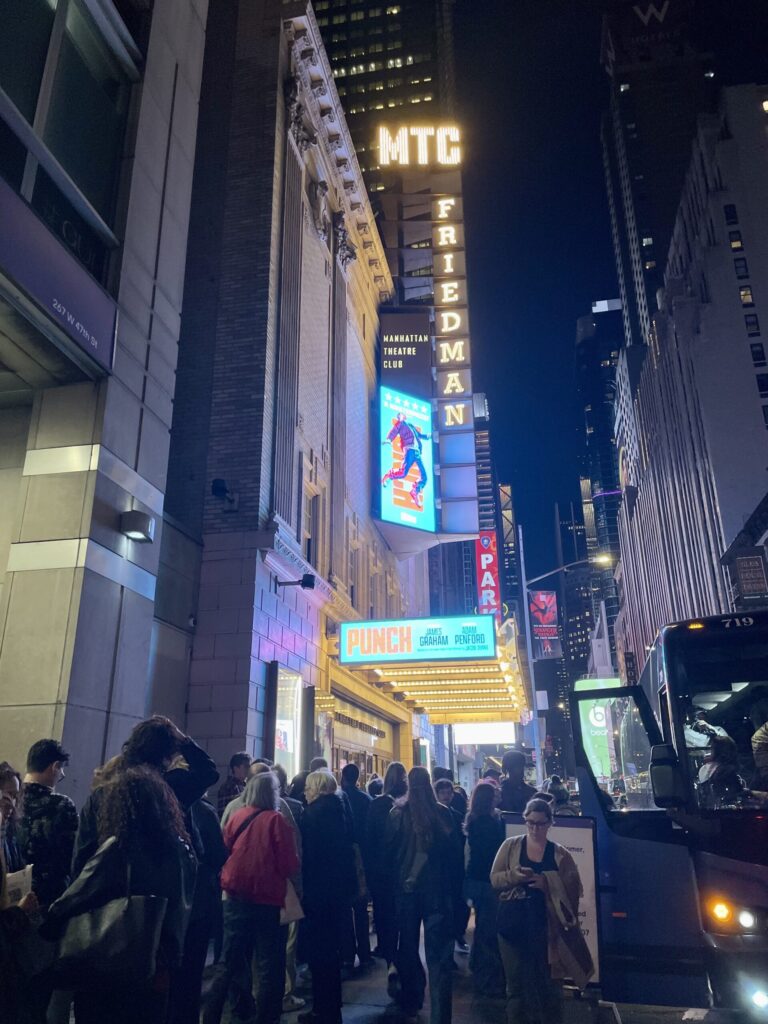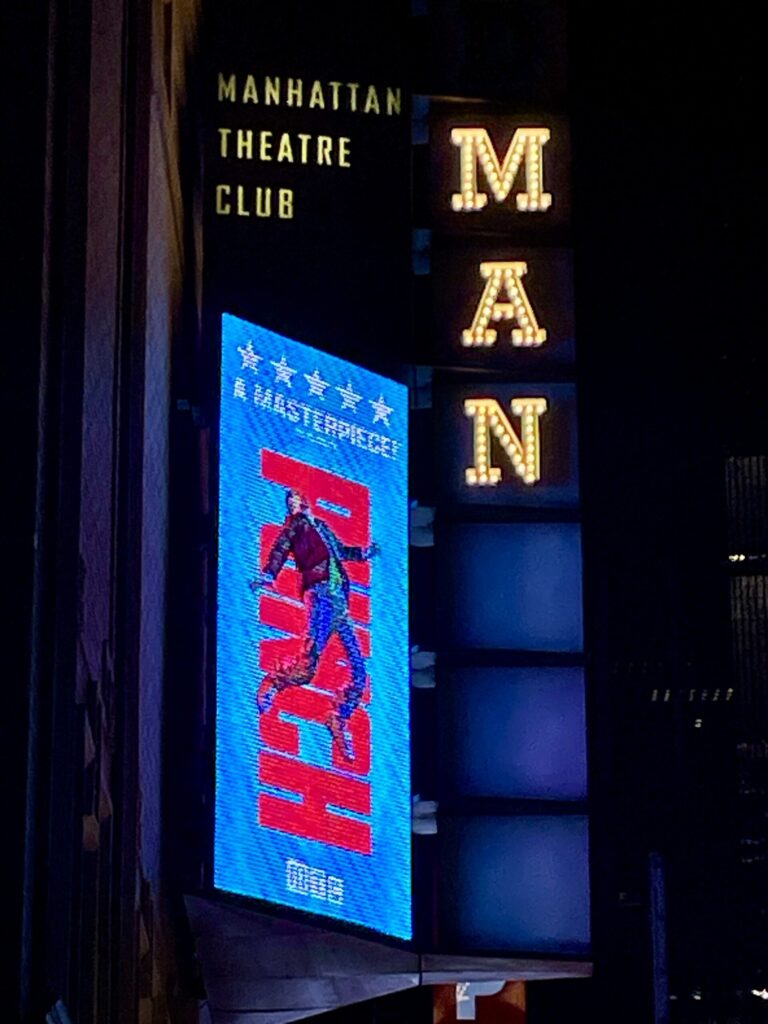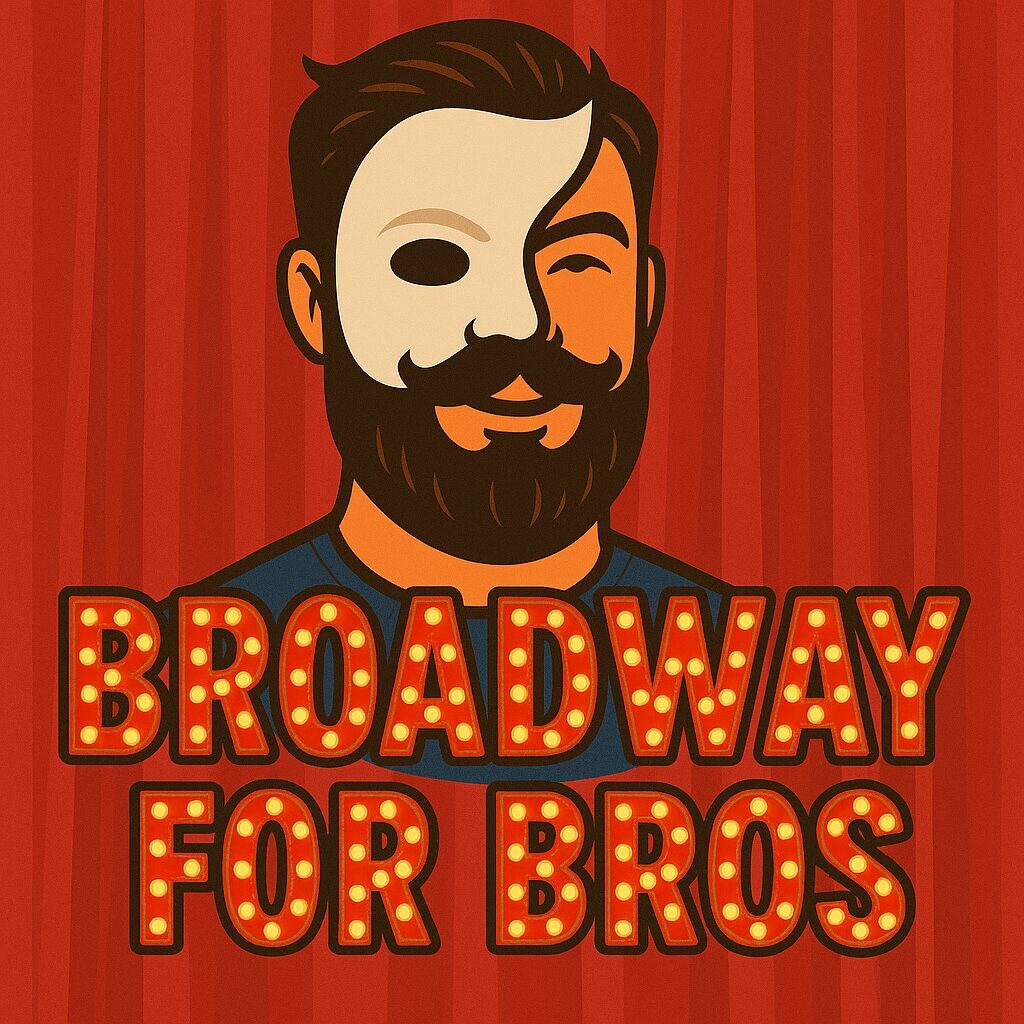Punch, the Broadway play, is based on a 2022 memoir, Right From Wrong, by Jacob Dunne. The story, on its surface, is a tale of redemption, which triggered all sorts of red flags in my mind. Here we go, I thought, embarking on the long road of guilt and remorse until we inevitably discover the rainbow of self-forgiveness. Yawn. And then the play began, and Will Harrison, who plays Jacob, fucking took over.
Harrison’s performance as the troubled protagonist was emotionally and mentally exhausting, but in the best way, like when a good run or workout floods your mind and body with endorphins. The visceral magic of Harrison’s portrayal, as he eloquently careens through pages and pages of dialogue (seriously, how do actors remember all those lines?) is that he exudes the intense energy of youth. It’s easy to forget about the oceans of hormones coursing through the muscles and minds of young men, but with Jacob, we can see those forces driving his character and his decisions. We forget that all of that energy has to go somewhere, and for teenagers like Jacob, where opportunities are limited, that somewhere is often drugs and alcohol and local friends who also like drugs and alcohol—and the exciting “drama” that comes with an impulsive, unruly lifestyle.

Tribalism is especially pronounced in poor neighborhoods, like the Meadows Housing Estate in Nottingham, where Jacob lives. Sure, The Outsiders teaches us that for every working-class gang of Greasers there is an opposing counterbalance of wealthy Socs, but in Punch, it feels like there is no other, opposite world. There is just their poor neighborhood and the rest of the ambiguous universe of whatever somewhere out there. In the Meadows Housing Estate, everyone knows everyone, which provides strength in numbers, but also means there is no where to hide. So when Jacob—junked up on booze, cocaine, and the adrenaline spike of rushing to violently defend his friend in a trivial dispute over a hat in a pub—lands a single punch that kills another young man, James Hodgkinson, it’s only a matter of time until the law catches up with Jacob. And it does.
Now, on a personal note, I used to teach in a jail. Though I never asked any of the inmates why they were incarcerated, they often wanted to explain to me why they were in my class. “One bad day,” they’d say. It was that simple in their minds. One. Bad. Day. The day they committed a crime and were arrested could be attributed to a triggering event like a cheating spouse that threw them into a rage, or some bad crack that made them think someone was stealing their car, or trusting—god damn they knew better—that “hot Asian bitch” (his actual words) who turned out to be a cop. Everyone was there because of one bad day. Jacob reminded me of those guys. Had James Hodgkinson fallen onto the pavement at a different angle he would still be alive. Had James Hodgkinson raised a hand to defend himself he would still be alive. Had James Hodgkinson spent one more minute in the bathroom combing his hair that day, he may still be alive. On his one bad day, Jacob murdered a man.

Justice, however, is about the victim’s one bad day. The mother and father of James Hodgkinson, Joan and David, played by Victoria Clark and Sam Robards, respectively, give the show its soul. Forgiveness as a means of setting oneself free of pain and grief is a cliche, but for a understandable reason. Hate corrodes the container that carries it, and finding space in your heart to forgive perpetrators of crimes is a healthy mental health journey for the bereaved and grief-stricken. Joan intentionally accesses this journey of forgiveness, while David struggles to forgive the man who killed his beloved son. Their path to finding solace brings them in touch with Jacob, who, after jail, has turned his life around, found a girl, and graduated from university.
Together, the four of them (I’m including James here because his life is present throughout the story) awkwardly forge a collective relationship, knowing the painful past is both irreversible and inescapable, but the quality of their future lives is fully contingent on their relationship with the past. Can a mother ever fully forgive her son’s killer? Can a father ever shake the hand that took away his son? And can a young man ever overcome the grief and guilt of having so senselessly taken the life of someone just like him?
You’ll have to see Punch to find out. Their journey is worth your journey to go see the show. But prepare yourself to be sad, in an uplifting human way. Life is especially difficult for people who make bad decisions but have a good conscience. In that sense, we can all relate to Jacob. And James. And Joan. And David. This connection we feel means the story is revealing a universal truth to us, though painful it may be. But that is how the universe works. Every force needs a counterbalance. For every rollicking Moulin Rouge there must be a devastating Punch. Thankfully, Broadway has it all.
See you under the marquee. – Jim Thompson

